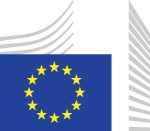Brussels, 29 January 2014 NEWS UPDATE POSTED BY CHARLOTTE OLIVER:
Disenfranchisement: Commission acts to defend voting rights of EU citizens abroad
The European Commission has today issued guidance to EU-Member States which have rules in place leading to a loss of voting rights for citizens in national elections, simply because they have exercised their right to free movement in the EU. Five Member States (Denmark, Ireland, Cyprus, Malta and the United Kingdom) currently apply regimes which have that effect. Whilst under the existing EU Treaties, Member States are competent to determine who can benefit from the right to vote in national elections, disenfranchisement practices can negatively affect EU free movement rights. Disenfranchisement practices are also at odds with the founding premise of EU citizenship which is meant to give citizens additional rights, rather than depriving them of rights.
“The right to vote is one of the fundamental political rights of citizenship. It is part of the very fabric of democracy. Depriving citizens of their right to vote once they move to another EU country is effectively tantamount to punishing citizens for having exercised their right to free movement. Such practices risk making them second-class citizens,” said Vice-President Viviane Reding, the EU’s Justice Commissioner. “In letters, petitions and citizens’ dialogues, citizens have made clear to us just how important this issue is to them. This is why, in the 2013 EU Citizenship Report, the Commission made a pledge to address the matter. Today we are doing our part of the job. We are calling on Member States to show greater flexibility and are issuing proportionate guidance to the five countries concerned so that citizens can get back on the electoral roll of their home country. I hope Member States will be ready to address these very concrete concerns, because disenfranchisement is a big deal for the individuals concerned.”
Five EU countries currently have national rules leading to a loss of national voting rights as a result of periods spent residing abroad (Denmark, Ireland, Cyprus, Malta and the United Kingdom). The rules vary considerably, with Cypriot citizens losing their vote if they have not resided in Cyprus six months prior to an election, while British citizens need to have been registered to vote at an address in the UK for the last 15 years (see overview in the Annex). There are other Member States which allow their EU nationals to maintain the right to vote under certain conditions, such as Austria, which requires overseas citizens to periodically renew their registration on the electoral roll, or Germany, which requires citizens to be familiar with and affected by national politics.




